
Causes, Incidence and Risk Factors
The Riley-Day syndrome is an inherited type of disorder which is known for affecting the normal development and functioning of the nerves everywhere throughout the human body. In some cases it may also be referred to as the familial dysautonomia or hereditary sensory and autonomic neuropathy type III. Since it is passed down through families, one must inherit a copy of the defective gene in question from both parents in order for this type of medical condition to develop. It is a peculiar fact that the Riley-Day syndrome occurs mostly in people characterized by an Eastern European Jewish ancestry. The incidence for people with such ancestry is 1 in 3,700. The main cause of this syndrome is a mutation in the IKBKAP gene which is located on chromosome 9. Generally speaking, the Riley-Day syndrome is considered as a largely rare medical condition.
Symptoms
The symptoms of this terrible medical condition are present at birth, and as the person grows older they only get worse over time. Not all possible symptoms are present in each case of the Riley-Day syndrome. The list of possible symptoms include unusually pale tongue surface, unusually smooth tongue surface, sweating while eating, blotching of the skin, seizures, repeated pneumonia, repeated fevers, poor overall growth, unsteady walk, poor coordination of the limbs, long episodes of vomiting, lack of tears when crying emotionally, inability to feel changes in temperature, inability to feel painful sensations, feeding difficulties in children, extremely dry eyes, diarrhea, decreased sense of taste, constant constipation, frequent passing out and breath holding spells. There are also certain types of complications which commonly occur in more than 40 percent of patients who suffer from the Riley-Day syndrome. The list of possible medical complications includes worsening of the muscle tone, drooling, severe difficulty swallowing (which is medicinally referred to as dysphagia), nausea, vomiting, mottling of the feet, mottling of the hands, increased states of irritability, insomnia, rapid heart rate (medicinally referred to as tachycardia), high blood pressure (medicinally referred to as hypertension), excessive sweating of the torso, excessive sweating of the head, blotching of the torso and blotching of the head.
Signs and Tests
There are certain tests and exams which the health care provider needs to perform in order to diagnose the syndrome properly. A physical exam is one of the common routines. Certain signs may be present during the routine physical exam and those may or may not include tiny pupils after receiving certain types of eye drops, severe cases of scoliosis, repeated episodes of high blood pressure, low muscle tone (which is medicinally referred to as hypotonia), lack of tears during the cases of emotional crying, decreased deep tendon reflexes, absent deep tendon reflexes and a lack of response after receiving a histamine injection. A healthy person usually has redness and swelling at the site of the injection as a normal response to the injection. If the health care provider still suspects that the person may have the Riley-Day syndrome, he or she usually advices certain blood tests to be performed. These tests are performed mainly to check the state of the IKBKAP gene and to check for any mutations present in it.
Management
Fortunately enough, there are a lot of different treatment options and methods available to all those who suffer from the Riley-Day syndrome. Treating the aspiration pneumonia is one of the possible solutions. Spinal fusion and related surgical interventions may also need to be used in certain cases of the Riley-Day syndrome. In any case and with every treatment option, the patient needs to be provided with sufficient amounts of fluids and the much needed nutrients, which are very helpful in enhancing and accelerating the process of treatment. The patient needs to be well protected from various types of injuries at all times. Some cases have been associated with great progress after including the physical therapy of the chest into the treatment plan. As is the case with many various types of medical conditions, the Riley-Day syndrome may call for the use of certain types of medicines. Liquid tears are often used for the prevention of excessive dryness of the eyes. There are also certain medications called antiemetics which are often used in patients who suffer from the Riley-Day syndrome in order to control and prevent vomiting. The intake of salt and caffeine may need to be increased in some cases. Elastic stockings may be used for the prevention of the postural hypotension. Gastroesophageal reflux is commonly avoided by feeding the child in an upright position. If the patient suffers from seizures, then the anticonvulsant therapy needs to be utilized as well. Those who suffer from the Riley-Day syndrome have a 50 percent chance of reaching 30 years of age. There are no ways of preventing this type of syndrome from occurring.




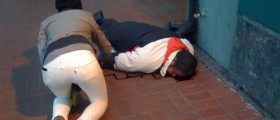
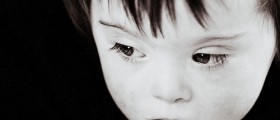
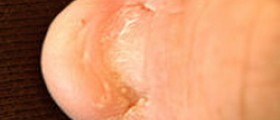
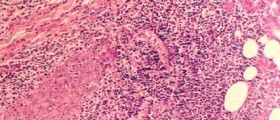
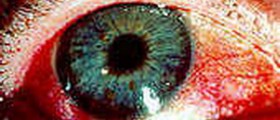

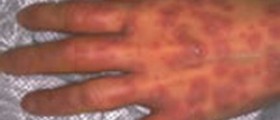


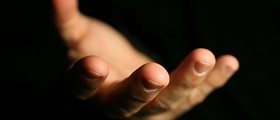
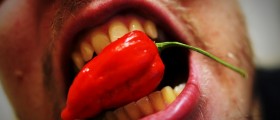
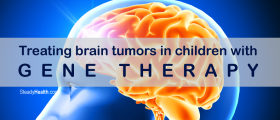
Your thoughts on this
Loading...